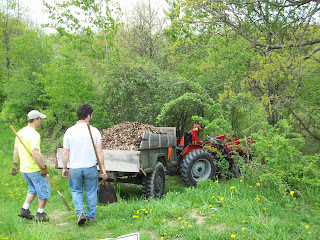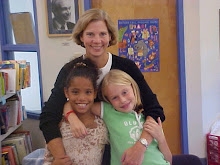At the end of the day, stronger learning will result from better teaching, not more testing, as leading nations have long understood, she says.
Evidence of good teaching: This article about our sixth grader Jack and his quest to save honey bees, Bees Find a Sixth Grade Advocate. (For the record, Jack wrote the letters to donors, and his mom, Lisa helped by typing and things like that.)
Look for Parker stories tonight on Channel 13 at 5:30 with Elaine Houston, and next Tuesday, too. Our school's success lies in good teaching that empowers students to make a difference. Testing would be scant evidence of that!
The Parker Bee Club in full gear. 10,000+ Carniolan honey bees seem happy in their new home - thanks to Jack, his teachers, his mentors, and his Mom.















































